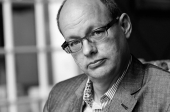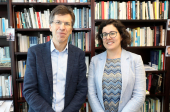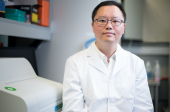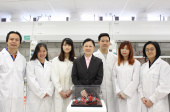研究故事
VP(R)'s Picks: Patterns of Tyranny
Renowned HKU Historian Professor Frank Dikӧtter examines some of the worst dictatorships of the 20th century to detect patterns of behaviour and insights on how they seized and retained power.
更多關於VP(R)'s Picks: Patterns of Tyranny的資訊VP(R)'s Picks: Technocracy and the Crisis of the EU
The European Union (EU) has turned increasingly to rule by technocrats rather than politicians and to coercive enforcement rather than voluntary co-operation. This diminishes the quality of democracy and fuels the turn to populism, argues a new analysis co-authored by Dr Stefan Auer and Dr Nicole Scicluna.
更多關於VP(R)'s Picks: Technocracy and the Crisis of the EU的資訊VP(R)'s Picks: New Chromatin 'Road Sign' Discovered
Histones help to regulate gene expression as part of the chromatin, which sits at the centre of every cell. The discovery of a new histone mark, called H4K91glu, by Dr Xiang David Li and his team opens the way to a better understanding of human health and disease.
更多關於VP(R)'s Picks: New Chromatin 'Road Sign' Discovered的資訊VP(R)'s Picks: A Gold Standard for Display Technology
The technology behind bendable screens depends on organic light-emitting diodes (OLEDs). Iridium-based OLEDs are currently favoured, but these are expensive, so the search has been on for new classes of OLEDs. Professor Vivian Yam Wing-Wah recently showed that gold-based OLEDs are a cheaper, less toxic and equally effective alternative.
更多關於VP(R)'s Picks: A Gold Standard for Display Technology的資訊VP(R)'s Picks: Faster, Better Tool Advances Precision Medicine
Precision medicine offers hope of better diagnoses and treatments for patients. But to achieve that, doctors need to sift through the three billion characters in each person’s DNA. Groundbreaking research by Dr Luo Ruibang, published in Nature Communications, is making that task a lot easier.
更多關於VP(R)'s Picks: Faster, Better Tool Advances Precision Medicine的資訊




